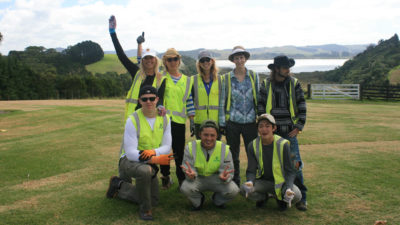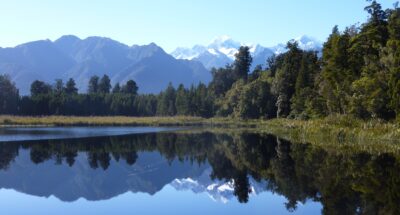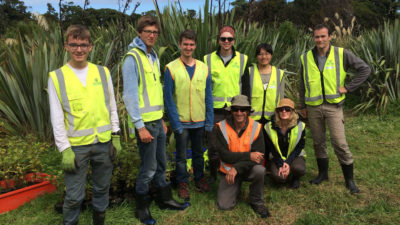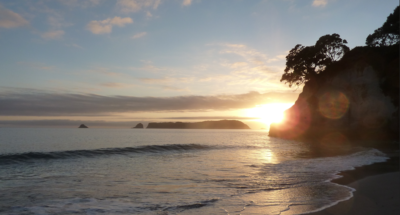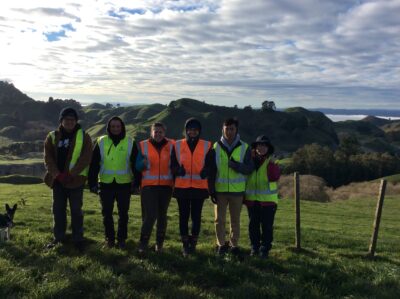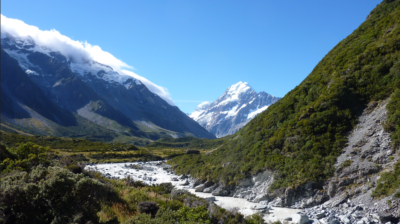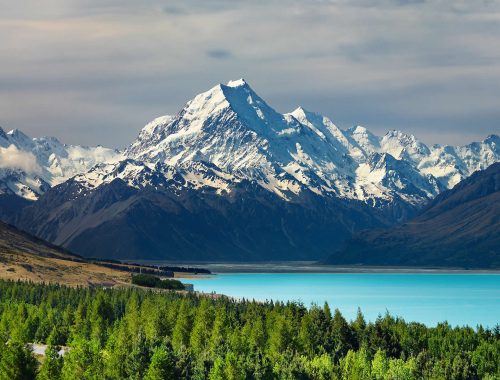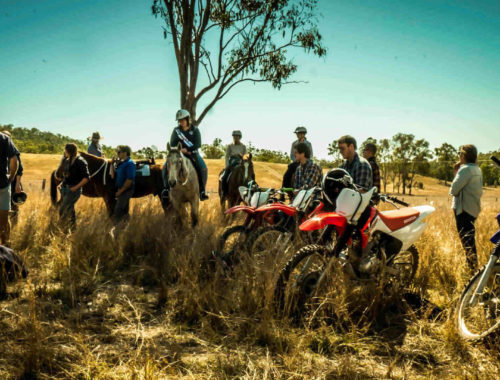Whether you are a student, professional or a retiree, anyone is welcome to make a genuine difference and contribute to protecting some of the most beautiful and remote islands in the world. Choose a gateway city and travel out to your conservation site to work with passionate and inspiring local Kiwis!
Duration: 1 – 12 weeks
Dates: Throughout the year
Arrival day: Friday
Return day: Friday
Eligibility: General level of fitness required
Age: 18+
Share with friends...
Highlights
- Help to maintain National Parks, coasts and waterways, flora and fauna and cultural heritage sites
- Enjoy volunteering in urban and rural locations enabling you to witness the diversity of New Zealand
- Spend some time in your dynamic gateway city and enjoy local sightseeing
- Meet like-minded volunteers on your project and enjoy weekends exploring local points of interest
- Add a conservation career course to support and apply for jobs after your trip
New Zealand’s legacy is ‘heritage’ and this makes up its national identity. By heritage we mean natural beauty, constructed buildings and cultural locations. Kiwi’s are proud of their special environmental status and indigenous background which is why the people who inhabit the “land of the long white cloud” are very conscious of preserving the beauty and exclusivity that they have been gifted. This is why many of the projects you will be working on are driven by inspiring and compassionate local New Zealanders.
There are 13 protected areas in New Zealand that have been reserved as National Parks. They include some of New Zealand’s most beautiful mountain and seascapes. Tongariro National Park for example is listed as one of the 27 World Heritage Sites.
New Zealanders have a special connection with their coastal regions and waterways. Unfortunately problems include coastal erosion, salinity and the effects of drought and pollution. There is loss of biodiversity, introduced foreign species, pests and problems with litter control. Volunteers help to maintain these precious areas so they can be enjoyed by people today and by future generations to come.
The environment can suffer greatly after such destruction such as fire, droughts, floods, storms and of course earthquakes. Often this is from man-made problems such as oil spills, or distressing situations such as whales beaching themselves. This is where volunteering work is paramount.
Sadly New Zealand has one of the highest rates of species loss in the world, and is home to many species currently threatened with extinction. In part this is due to the introduction of animals such as cats, deer, rats, possums and stoats. Luckily there are a growing number of sanctuaries that endeavour to conserve and protect New Zealand’s unique biodiversity and stunning bird population. Our volunteers will be lucky enough to work in conjunction with them to help create a pest-free environment with re-introduced native species.
Volunteer in New Zealand and enjoy preserving urban, regional and remote locations through activities such as:
- Tree planting
- Walking trail construction
- Protect native birds, lizards, insects, fish and penguins
- Seed collection
- Weed control
- Conservation fencing
- Heritage and habitat restoration
You, and a group of up to 10 volunteers, will work under the guidance of a conservation team leader. Your team leader will give you regular safety briefings, inform you of the project aims and assist you with working effectively.
There are four gateway cities to choose from in New Zealand:
Auckland (North Island)
These projects use Auckland as the launch pad for places such as the Whakanewha Regional Park and Te Matuku Peninsular, both situated on the fabulous island of Waiheke. There may also be opportunities to help in the Atiu Creek Regional Park, the Hunua Ranges, Omana Regional Park and areas around Hamilton.
These areas boast forests and wetlands and are home to some of New Zealand’s rarest birds. One of the main environmental challenges is the growth of foreign plants such as the Japanese honeysuckle and the moth plant. Help eradicate foreign species, service baitlines, collect seeds, create walking tracks and get involved with mulching.
It truly is an amazing location for those interested in flora and fauna and preserving coasts, waterways and park lands.
Wellington (North Island)
Projects from Wellington include the Anamata Stream Restoration Project which encourages landowners in rural areas to take control of the section of stream that runs through their property.
The aim for volunteers is to reduce erosion and promote biodiversity and sustainability. A great project for those interested in parks and reserves, coasts and waterways, flora and fauna and land care.
Christchurch and Punakaiki (South Island)
There are some fabulous projects around Christchurch and for longer stays you will head over to the Punakaiki coast on the west side of the South Island. Ultimately, if you wish to just volunteer at Punakaiki this is also possible. Punakaiki is most famous for the Pancake Rocks which are a heavily eroded limestone area. The ocean waves burst through the vertical blowholes creating a spectacular show!
Projects in these areas focus on coastal restoration and aim to restore biodiversity, educate locals, strengthen community networks and ultimately provide ‘new heritage’ land for future generations to enjoy.
Volunteers will be tree planting, collecting seeds and eradicating foreign plant species. This is great for those interested in preserving parks, coasts and waterways.
Please note that it is only possible to choose a gateway city, not a project, as these are dependent on circumstances that can vary throughout the year.
No previous experience or qualifications are necessary to join the project. All you need is a passion for the environment, some enthusiasm and a fairly good level of fitness to help out!
Are you looking for paid work in the conservation sector after volunteering or interning? Oyster have teamed up with our friends at Conservation Careers who support people to find paid work in conservation following study or a career change. You can add their fantastic and flexible course to your volunteering trip with Oyster. Your Oyster experience will help add interest to your conservation resume as an eye catching addition to your job applications in future!
- Accommodation is provided during your volunteer time and this varies depending on your project
- Often volunteers stay in guest houses or hostels, but you could be going a little more rustic – think caravans, shearers’ quarters, bunkhouses or even camping (tents will be provided)
- We recommend that you take a sleeping bag and sleeping mat, and be prepared to share a room!
- Food is included, but prepare to get stuck in with the preparation of meals, cleaning dishes and any other household duties that need to be done. This is a fun way of getting involved and becoming part of the team
Travel arrangements
Airport: Auckland, Wellington or Christchurch
Arrival day: Friday. You will receive an orientation in your gateway office before being transported out to your project over the weekend to begin volunteering on Monday
Departure day: Friday at 4pm
Included
- Access to your own personal ‘My Oyster’ account – our online portal where you can find out much more about the program and manage your booking
- Dedicated contact time with an experienced destination manager to discuss the project, answer any of your questions and for us to find out more about you
- Help and advice from our UK office before arrival and whilst you are away
- Pre-departure information covering medical, safety and project advice
- Gold level, 24/7 Pharos crisis management and incident support cover
- Financial protection: ATOL (if we book your flights).
- Thorough orientation on arrival
- In-country support
- Accommodation (see the ‘accommodation’ section above for details)
- Advice on visa requirements
- Oyster plants a tree in Africa with TreeAid to help reduce the impact of global carbon emissions
- Project-related travel costs
- Project training and safety training
- Certificate of Appreciation at conclusion of programme
On your return:
- Welcome home pack
- Certificate of recognition (on request)
- References (on request)
Not Included
- Flights – as an ATOL bonded company, Oyster can book flights for you
- You need a valid passport that meets the requirements of the country you will be travelling to
- Insurance (covering your time with Oyster and any planned independent travel)
- Any costs associated with changing your return flight date if you need to
- Independent travel costs
- Home country travel costs
- Spending money for additional trips, food and entertainment
- Eligibility for a tourist visa
- Travel costs to get to the gateway city meeting point
More Information
Breakfast : 08.00
Each day will vary. You will normally be spending one to two weeks in each location. You will be working with a team of up to 10 volunteers under the guidance of an experienced team project leader.
Jobs may include:
- Tree planting
- Constructing walkways
- Seed collection
- Wildlife surveys
- Weed control and eradicating foreign species
- Conservation fencing
- Heritage restoration
Finish :16.00
At the beginning of each day your team leader will run through safety procedures and instruct you on how to perform the task in hand.
The evenings and weekends are for you to enjoy socialising or independent travelling and exploring. Make the most of the exciting location that you are in and fully immerse yourself into local Kiwi community life.
You can chose from two locations on the North Island and one on the South Island. Auckland and Wellington are your gateway cities to exciting projects. Christchurch projects and for longer stays, the west coast of the South Island in Punakaiki. Please be aware that the type of project that you will be participating in cannot be determined before you arrive in New Zealand.
Whilst late-availability is possible, we would advise booking as soon as you can to guarantee your ideal dates. Our projects are very popular and spaces can fill up several months in advance, especially for the months of June to September.
Most of our volunteers are independent travellers, but you can also apply with a friend. You will join a group of between 6 and 10 people from all over the world who have the same keen interests as you. You make friends very quickly by getting involved cooking and completing domestic chores as a team. If you are applying with a friend then be sure to let us know by writing their name on your application form.
To be eligible you need to be over 18 and have a reasonable level of fitness.
The hours vary but typically between 8am until 4pm with lunch and morning and afternoon breaks. Usually you will be working 5 days a week with 2 days free for relaxing and sightseeing. If you finish a project early then you will move to a new project on a free day.
The projects take 1 or 2 weeks. You will be working for 5 days per week with 2 days free. These free days include travel time if you are moving from one project to another.
New Zealand is known as one of the world’s most remote destinations and the last island in the world to become inhabited by humans. With one third of the islands made up of National Park, it is vital that this amazing biodiversity is protected for years to come.
Taking part in a conservation project genuinely aids towards restoring land to its former, purer state. You will be protecting endangered species, clearing up the environment and reintroducing native plants.
This project will give you great work experience and a greater understanding of a country and culture. Live and work with the locals in areas off the beaten tourist track. Make new friends, boost your CV and contribute to the planet’s need for conservation.
On the whole, both the North and South Islands enjoy mainly moderate climates throughout the year. The far north has sub-tropical weather during summer months and the inland alpine areas of the South Island can be as cold as -10c in winter. Given that you are never that far from the coast, most of the country experiences mild temperatures, moderate rainfall and an abundance of sunshine. Summer is December to February and the coldest months are from June to August.
We would recommend budgeting up to £50 a week for activities during your time off, souvenirs or meals out.
You can apply for a visitor online at the New Zealand immigration website . There are some countries that do not have to apply for a visa before they come to New Zealand and can obtain a visa waiver
For further information and to ascertain your eligibility, please visit the website above.
Please visit your doctor or travel nurse to find out. It is unlikely that you will need anything in addition to your routine vaccinations, which should be up to date.
For any information related to Covid-19, please see the Fit for Travel website or the UK government’s travel advice page for New Zealand.
New Zealand, alongside Denmark, is considered the least corrupt country in the world. It is an extremely safe place with low crime rates. As when travelling in any country, it pays to keep your wits about you. Be sure to make use of safes to lock away your valuables and keep an eye on your luggage and personal belongings at all times.
This really depends on your location, but you will never be too far from civilisation. At times you will be based in urban areas, at others you will be in very rural locations. You will always be with a group and catered for well, whether it be for food or drink or general necessities.
This will depend on your project and where you are staying; unless you are staying in a hostel you probably won’t have internet access until your days off, and this would rely on you being close to a town.
In New Zealand the power sockets are of type I. The standard voltage is 230 V and the standard frequency is 50 Hz.
New Zealand is 12 hours ahead of GMT (GMT/UTC + 12). Please note New Zealand practices daylight savings so it is +13 during some months of the year.
Auckland has so much to offer that it is impossible to list it all here.
- Enjoy a coastal walk past the volcano cone of Mt Eden and One Tree hill. Visit the Auckland museum and Art Gallery, both of which are free to enter
- A pub crawl is always a great way to meet new people and why not enjoy a free backpacker tour giving you advice on the top sites, eateries and parties in the local area
- Watch a free movie in the park, walk to Silo park or take a ferry trip to visit the picturesque town of Devonport
- Some of New Zealand’s highlights as a whole include the glaciers and mountain walks of Milford Sound, Tongariro National Park, Bay of Islands, Lake Wanaka
- The Hobbiton Movie set and Waiheke Island. You are never far from the coast so there is always the option of a fantastic beach somewhere on your travels
The simple answer to this question is, yes absolutely!
It is important to bear in mind however that this may not be like other holidays that you have taken. Remember that you are volunteering, and this means that you will be put to work! This sort of holiday is a world away from sun loungers and cocktails, with our volunteers often heading home tired but immensely satisfied. If you think that you will need a bit of relaxing time on your trip too, do make sure to factor this in when your time on the project is complete.
Supervision will be fairly intensive during the first few days, when you will receive a thorough induction and work-related training. Once you are comfortable with things, you might not always have a supervisor working alongside you, but there will always be staff and other volunteers around to help, and you will always be accompanied for any high risk activities.
Staff at Oyster’s head office and in-country will be responsible for your safety and welfare while you are at the project. This will start from 11 am on the Friday morning of your induction. Before and after these times, you will be outside Oyster’s responsibility and should make sure that you act safely and avoid risk. This is also true if you choose to leave the project during your time off. We will give you plenty of guidance and advice about this.
Project Reviews
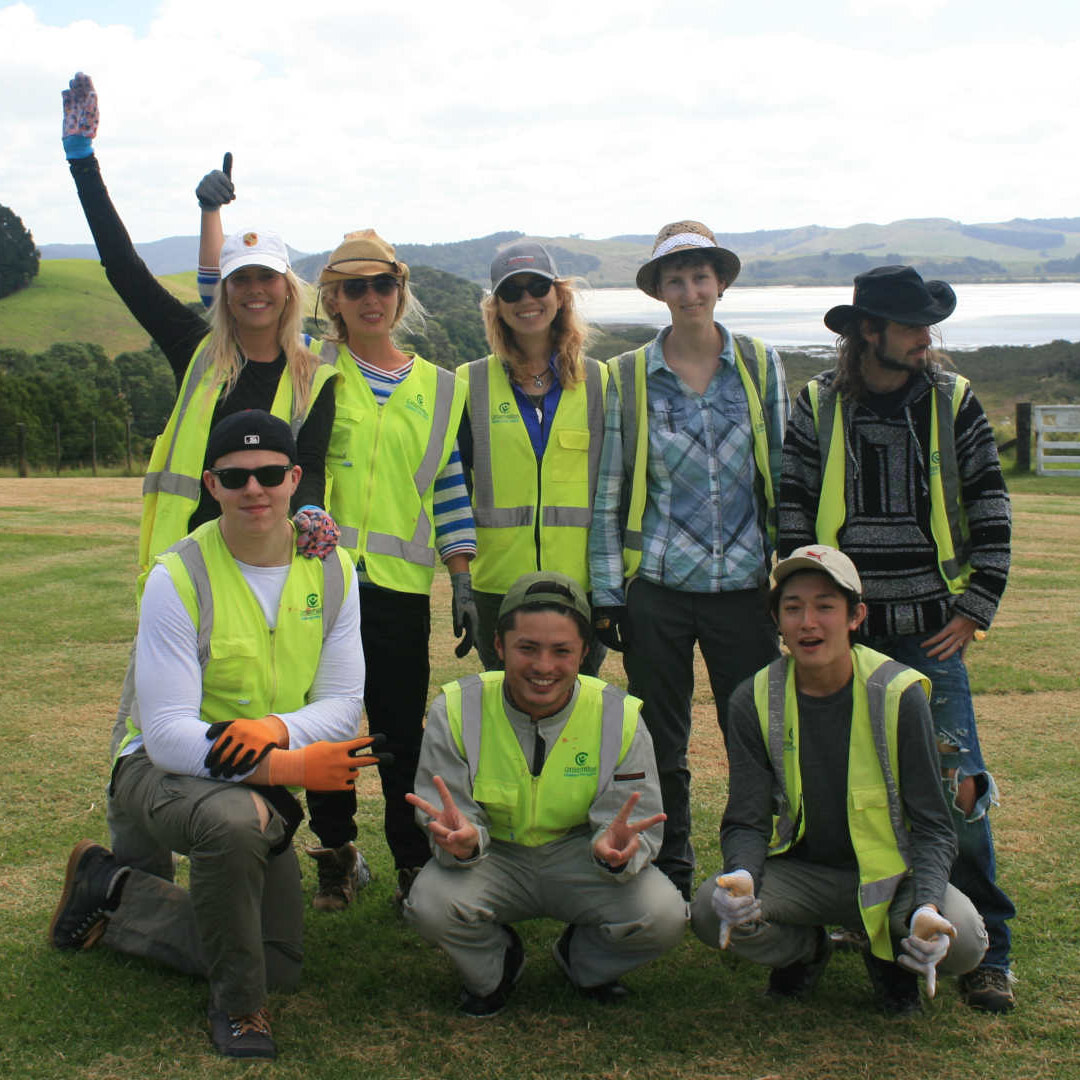 "New Zealand is incredible. I am loving every moment, especially the conservation. The people that I met on my short time on the trip became a little Nz family to me and I’m very sad to be going. The work was rewarding, fast paced and fun but the other activities and fun days we also did make it completely worth it! Living in a house with just other volunteers was daunting at first but it was a really fantastic expensive and I have made some lifelong friends and memories. Many thanks for all your help!"
"New Zealand is incredible. I am loving every moment, especially the conservation. The people that I met on my short time on the trip became a little Nz family to me and I’m very sad to be going. The work was rewarding, fast paced and fun but the other activities and fun days we also did make it completely worth it! Living in a house with just other volunteers was daunting at first but it was a really fantastic expensive and I have made some lifelong friends and memories. Many thanks for all your help!"
Tilly, 2 weeks May 2023
Oyster volunteers sharing their experiences about their time as conservation volunteers in New Zealand!
 "New Zealand is incredible. I am loving every moment, especially the conservation. The people that I met on my short time on the trip became a little Nz family to me and I’m very sad to be going. The work was rewarding, fast paced and fun but the other activities and fun days we also did make it completely worth it! Living in a house with just other volunteers was daunting at first but it was a really fantastic expensive and I have made some lifelong friends and memories. Many thanks for all your help!"
"New Zealand is incredible. I am loving every moment, especially the conservation. The people that I met on my short time on the trip became a little Nz family to me and I’m very sad to be going. The work was rewarding, fast paced and fun but the other activities and fun days we also did make it completely worth it! Living in a house with just other volunteers was daunting at first but it was a really fantastic expensive and I have made some lifelong friends and memories. Many thanks for all your help!"
Tilly, 2 weeks May 2023
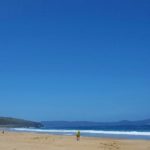 "We did everything from removing invasive plants to planting seedlings. It was a great chance to explore Christchurch & help at the same time. The following week we drove to Punakaiki where we planted some 600 trees. We were right on the beach and I got a chance to run a couple miles and jump in the ocean right after volunteering was over. I have never seen such amazing stars as I did while I was there. It felt as though you could pluck them out of the sky. Thanks for helping me put all of this together"
"We did everything from removing invasive plants to planting seedlings. It was a great chance to explore Christchurch & help at the same time. The following week we drove to Punakaiki where we planted some 600 trees. We were right on the beach and I got a chance to run a couple miles and jump in the ocean right after volunteering was over. I have never seen such amazing stars as I did while I was there. It felt as though you could pluck them out of the sky. Thanks for helping me put all of this together"
Peter, 2 weeks February 2023
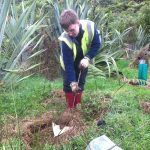 " I am having the best time here in New Zealand. The activities are quite varied and the scenery is absolutely fabulous. We had a great time last night in Atiu Creek when the power went out. We couldn't use the cookers as they were electric so we used the fireplace instead. It actually worked really well and we even managed to make a crumble! It was like being around a campfire"
" I am having the best time here in New Zealand. The activities are quite varied and the scenery is absolutely fabulous. We had a great time last night in Atiu Creek when the power went out. We couldn't use the cookers as they were electric so we used the fireplace instead. It actually worked really well and we even managed to make a crumble! It was like being around a campfire"
Ruth, 5 weeks October 2018
"
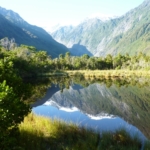 I just got to Wellington yesterday and have gotten set up in the house. My stay in Auckland was great! Everybody was really nice and I got along well with the volunteers (lots of Germans!) Atiu Creek was really nice! Our team leader Bruce was pretty cool and the work felt rewarding! So far, I've had a good time in New Zealand and I hope the coming weeks will prove to be just as good!"
I just got to Wellington yesterday and have gotten set up in the house. My stay in Auckland was great! Everybody was really nice and I got along well with the volunteers (lots of Germans!) Atiu Creek was really nice! Our team leader Bruce was pretty cool and the work felt rewarding! So far, I've had a good time in New Zealand and I hope the coming weeks will prove to be just as good!"
Nicolas, 3 weeks April 2018
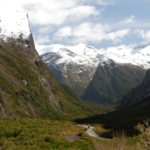 "I am in Wellington at the moment. I really enjoyed the last two weeks. I loved it. I had a lovely group and we had lots of fun with our kind Team Leader. I liked the work as well, we had done plenty of interesting things. Overall I’m happy that I joined these projects.So far I had a great time. I love being a volunteer. I really enjoyed spending time with like-minded people and talking about their countries. In addition I love New Zealand and the Kiwis are incredibly friendly"
"I am in Wellington at the moment. I really enjoyed the last two weeks. I loved it. I had a lovely group and we had lots of fun with our kind Team Leader. I liked the work as well, we had done plenty of interesting things. Overall I’m happy that I joined these projects.So far I had a great time. I love being a volunteer. I really enjoyed spending time with like-minded people and talking about their countries. In addition I love New Zealand and the Kiwis are incredibly friendly"
Isabella, 4 weeks Jan 2018
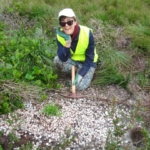 "I'm loving it so far! Just remembered seeing something about offsetting my air miles by paying towards a tree planting project - was it on the website? - typical I can't find it now. Keen to calculate the number I'd need to plant in theory.I'm planting trees here in NZ though - did 49 yesterday!"
"I'm loving it so far! Just remembered seeing something about offsetting my air miles by paying towards a tree planting project - was it on the website? - typical I can't find it now. Keen to calculate the number I'd need to plant in theory.I'm planting trees here in NZ though - did 49 yesterday!"
Bronwen, 2 weeks Feb 2018
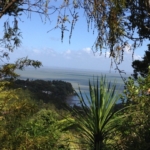 " I've just finished my first week of volunteering at a national park called Atiu Creek about 1.5 hrs north of Auckland. It has so far been great fun & everyone (both staff and fellow volunteers) have been really friendly. This weeks activities included planting trees in areas that will eventually become woodland again and removing invasive tree species from conservation areas. I feel like I've already learnt a lot and can't wait for the rest of my trip - especially to explore the South Island soon!"
" I've just finished my first week of volunteering at a national park called Atiu Creek about 1.5 hrs north of Auckland. It has so far been great fun & everyone (both staff and fellow volunteers) have been really friendly. This weeks activities included planting trees in areas that will eventually become woodland again and removing invasive tree species from conservation areas. I feel like I've already learnt a lot and can't wait for the rest of my trip - especially to explore the South Island soon!"
Amy, 9 weeks September 2017
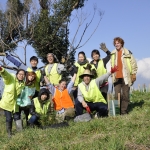 "Hi Georgie! Things in New Zealand are great! Everything with the program has been easy, from finding where I need to be and figuring out what I need to do. The organisers have been really kind, informative, and knowledgeable. Thank you for everything that you have done! I've been very prepared for everything"
"Hi Georgie! Things in New Zealand are great! Everything with the program has been easy, from finding where I need to be and figuring out what I need to do. The organisers have been really kind, informative, and knowledgeable. Thank you for everything that you have done! I've been very prepared for everything"
Aidan, 6 weeks September 2017
Got a question or want to chat to Project Manager Kate who has first-hand experience of the project? Call +44 (0) 1892 771 973or email: – [email protected].

